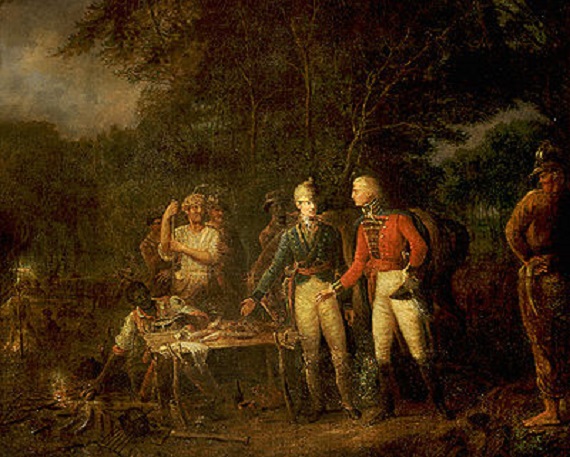
Francis Marion is better remembered today than he used to be. There was a time, however, when, outside of his native South Carolina, hardly anyone without a good knowledge of the Southern theatre of the American Revolution would have heard of him. And there just weren’t that many Americans with that particular knowledge. In whatever education they may have received about the Revolution, the South’s important role in that epic struggle was either unknown by those doing the teaching, glossed over, or ignored. The result was that the extraordinary efforts of men like Marion, Thomas Sumter, Elijah Clarke and so many others in the fight for American independence in South went largely unheralded while those in more northerly regions received sustained and sometimes fawning attention from historians, popularizers, documentary film makers, etc. For example, in the preface to his book The Road to Guilford Courthouse: The American Revolution in the Carolinas, published in1997, New York author John Buchanan claims that, “On learning of my subject, a friend of mine, well educated, well read, intellectually curious, looked surprised and admitted, ‘I really don’t know what happened south of Philadelphia.’”
We shouldn’t perhaps think too badly of John Buchanan’s friend. The Revolution in the South was bloody and complex and in many respects the sources historians need to do the work of telling its story are pretty thin in places, and obscure in others. It’s not a story quickly or easily told, not least of all because it’s such a compelling one. A peek through the door requires you to go on inside, have a seat, and linger for a while.
More @ The Abbeville Institute

I have been to Pineville SC and visited his grave. It is a piece off of the main road. When I saw it, it was poorly taken care of. Today the state has spruced it up quite a bit. Also have visited Sumter's grave. Another interesting site is the local cemetery in Pendleton SC where I believe five Confederate Generals are buried. The most famous being Bernard Bee who is credited with giving General Jackson the name Stonewall. Also when visiting SC go to Abbeville. The last meeting of President Davis's cabinet was held in a local home. As a Midwestern transplant this place is flooded with great history.
ReplyDeleteInteresting and thanks.
DeleteJust read this this past weekend .. an awesome read! Eye opener.
ReplyDeleteGreat! Thanks.
DeleteMy Great granpa x? was born 1745 in Salisbury NC, he was the town blacksmith and was known for his recipe of tar. He fought with Marion
ReplyDeleteGood deal.
Delete